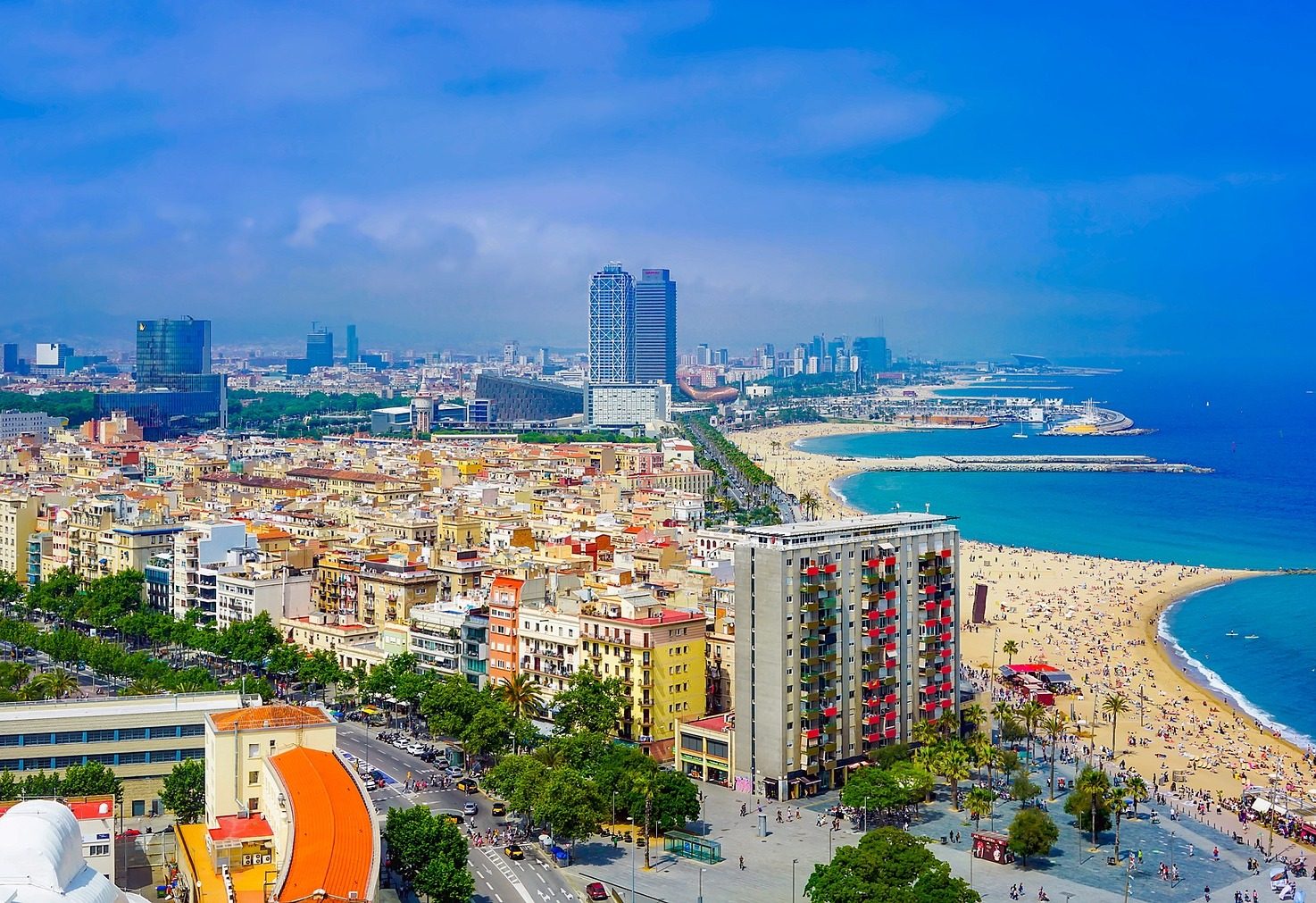
Should I study abroad in Barcelona? Your five more pressing questions answered!
Are you considering studying in Barcelona? If so, you must be wondering what you need to know about life in the Catalan capital.
Barcelona is very popular with foreign students. A cosmopolitan European city with one of the world’s best city beaches, a world-class festival scene and a great quality of life, it’s easy to see what draws so many people here to study.
But it’s important to do your research before making a big decision about where to spend a year (or more!) – so here are the top five things to know before you decide if Barcelona is the right destination for you:
1. How much does it cost to study abroad in Barcelona?
If you’re considering studying abroad in Barcelona, you’ll want to know what kind of budget you’ll need for life in the city. Accommodation costs start at around €300 a month for a small room in a shared flat, and increase from there based on how much space and privacy you’d like. If you want to rent your own flat, you can expect to pay from €700 upwards.
Accommodation expenses aside, your monthly budget will depend on your tastes and interests. The cost of living is relatively low in Barcelona compared to other cities in Europe. A minimum budget would probably be around €250 a month excluding accommodation, but most international students probably spend around €400 a month on food, travel, going out and living expenses. And if you like the high life, expect to spend a bit more!
2. Is it easy to find accommodation in Barcelona?
It’s fairly easy to find accommodation in Barcelona. The city has options to suit all budgets for short- and long-term stays, from Airbnbs to private rentals to student residences. Accommodation is much cheaper in Barcelona than in other European capitals so you’ll have more choice when it comes to deciding where you want to live.
Lots of students live in shared apartments, where you’ll spend between €300 and €600 on a room. However, student residences are also a good option for building up your social circle, with communal meals and organised events, and cost from €500 per month. You’ll find more details on our Accommodation in Barcelona information page, along with lots of links to useful websites.
3. How easy is it to get a visa to study in Barcelona?
You’ll need a student visa if you’re coming to study from a country that isn’t a European Union member state unless it’s Norway, Iceland, Liechtenstein, or Switzerland. To apply for a student visa, you’ll need an enrollment letter detailing your course dates, which your chosen school or university will be able to supply.
Once you’ve got your enrollment letter, the rest of the process is fairly straightforward. You’ll need the following documents as part of your visa application:
- Proof of medical insurance
- A medical certificate showing that you are disease-free
- Proof that you have enough financial resources for the duration of your visa
- Information about where you will live
- A criminal record certificate
The visa application process usually takes two to three months to complete, so it’s a good idea to start getting organised in plenty of time for starting your course!
4. Will I be able to build an English-speaking network in Barcelona?
Barcelona is a bilingual city, with the majority of residents fluent in both Spanish and Catalan. The level of English isn’t the same as in northern European countries, but international tourism is a big part of the city’s economy, so most Catalans who live in Barcelona speak at least a little English.
Barcelona is also very cosmopolitan – a fifth of its residents are foreigners – and there is a large community of English speakers here. So don’t worry if you don’t speak Catalan or Spanish – you’ll be able to get by with English while you start learning the local languages.
What’s more, the majority of schools and universities in Barcelona offer courses in English. You’ll find that English is the lingua franca among international students here so you’ll be able to build a network while studying in Barcelona that has links all over the world.
There’s also a big international business scene in the city. The growing tech sector is concentrated in the beachside neighbourhood of Poblenou – lots of multinational companies have offices here. There are amazing opportunities for internships while you’re studying, which several of our alumni have participated in.
At ESEI there’s a big emphasis on community. Once you’ve attended ESEI, you’re part of our community of alumni who work all over the world. You’ll have connections in many different industries and in lots of different countries.
5. Is it safe to study abroad in Barcelona?
Barcelona is a very safe city to live in, but it does have a reputation for pickpockets. This is mainly because of the large number of tourists in the city centre. So it’s good to be careful with your belongings and follow some common-sense rules, like keeping your phone in your front pockets, and not wearing lots of expensive jewellery. However, there’s very little violent crime in the Catalan capital, with a lower murder rate than many other European cities including London, Berlin and Brussels.
Since we’re still in the middle of the coronavirus pandemic, you may be wondering whether it’s safe to move to Barcelona during such an uncertain time. Spain did have a severe outbreak of COVID-19 in the spring. However, the government’s rapid response flattened the curve quickly, and both the public and private healthcare systems in Barcelona are world-class. What’s more, the threat posed by the virus is taken very seriously by both the regional and national governments, so you can rest assured that if there is another outbreak, the government will respond swiftly and appropriately.
If you’d like to study abroad in Barcelona but you’re not sure if you can move here in time for the fall semester – due to travel restrictions or any other issues related to the COVID-19 pandemic – check out our remote learning option. You can get started with your course from a distance and continue in person when you’re ready to join us in Barcelona!
Other resources
For any other pressing questions you have about life in Barcelona, get in touch with us! Our team is always ready to answer your questions, no matter how big or small.
If you’d like to have some first-hand insight into student life at ESEI, you can contact one of our current students or alumni through our ESEI Ambassadors page.
And don’t forget to have a look at our blog for more information on living, studying and working in Barcelona.
Tag:barcelona



